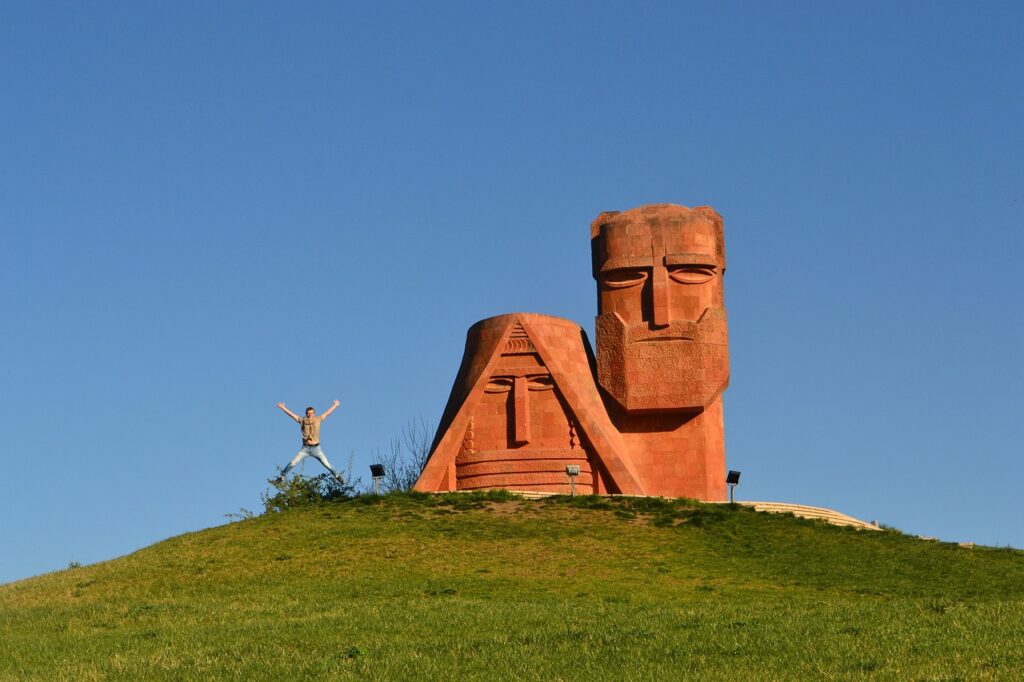Caucasus Update No. 18, Jan. 19, 2009, published by Caucasian Review of International Affairs (www.cria-online.org)
In early January, a number of Azerbaijani news outlets reported that Russia had, throughout 2008, transferred an estimated $800 million worth of military hardware to Azerbaijan’s rival Armenia. The story is murky, but an Azeri media organisation received a list of equipment allegedly supplied, including tanks and armoured personnel carriers, grenade launchers, ammunition, and rockets. At the time of writing, the Russian response had been mixed: some carefully worded denials from the Foreign Ministry, promises of clarification from the Russian embassy in Baku, and stonewalling from the Defence Ministry. Russia’s overall approach has been moving towards denial, but the lack of an outright, immediate statement has inevitably fanned the flames of rumour. The Azerbaijani armed forces allegedly put their forces on high alert in response.
If the story is true, the implications could be significant. The peace process over Nagorno-Karabakh is in an extremely delicate phase, and Russia has recently gone to great lengths to depict itself as an impartial mediator. Any truth in the arms transfer rumours would destroy Moscow’s reputation as an honest broker and undo much of the tentative progress that has been recently achieved.
The military implications are also significant, since the size of the transfer would go some way towards redressing the huge growth in Azerbaijan’s armed forces in recent years. Precise, up-to-date figures are very difficult to come by, given the opaque nature of both countries’ defence sectors, the difficulties of gathering information on Armenian forces in Karabakh, and the rapid expansion of armed forces. But most independent estimates give Azerbaijan the quantitative edge over Armenia, particularly in terms of heavy equipment.
A far more significant factor, and arguably a key reason for the lack of major combat since 1994, is the topography of the Karabakh region. The ceasefire line currently runs through rugged, mountainous terrain topped with multiple defensive lines which would favour the Armenian side in any war launched by Baku. Azerbaijan’s purchase of 25 Su-25 ground attack aircraft from Georgia and unmanned aerial vehicles from Israel should be seen in this context: as an attempt to maintain air superiority and therefore compensate for the difficulties of ground artillery in such terrain. Turkey has also offered to upgrade the Azerbaijani air force, alongside its other assistance in the fields of education and technical support.
The Russian 102nd Army base in Armenia has played a huge role in assisting and upgrading Armenia’s military so far. The base’s inventory of hardware was boosted in 2005 when Russia closed its bases in Georgia and transferred 370 pieces of equipment to the 102nd base. The forces at the base are militarily very significant: 74 tanks, 224 armoured combat vehicles, 60 towed artillery systems, 14 aircraft and the advanced S-300 missile system. Although the limited number of Russian personnel there would prohibit a large-scale deployment of this equipment, it is possible that the 102nd would, in the event of war, ‘lend’ the equipment to Armenia’s armed forces under the terms of the Russo-Armenian military alliance. There are also estimated to be huge – relative to the territory’s size – number of tanks and other pieces of hardware within Nagorno-Karabakh and the surrounding regions. This allows Armenia to circumvent its restrictions on such equipment under the Treaty on Conventional Armed Forces in Europe, although it has accused Azerbaijan of doing the same.
Georgia has a critical and often under-realised role in any potential conflict for a number of reasons. Firstly, in the aftermath of the August war it suspended most Russian flights over Georgian territory to the 102nd base, preventing the base from receiving critical military supplies: therefore the figures given for the Russian base should be taken with a pinch of salt. More broadly, as military analyst Roger McDermott notes, the transfer of any equipment from northern states such as Ukraine to Armenia could be blocked by Georgia, since they would have to be shipped through Georgian territory from a Black Sea port, although such a deal was confirmed in November.
Secondly, and related to this, Tbilisi will have to make a clear and difficult choice in any renewed war between Baku and Yerevan. Georgia has no interest in spoiling its ties with Yerevan, and has expressed interest in defence co-operation (for instance, on upgrading Armenian tanks in a Georgian plant). But these links cause friction with Azerbaijan, with whom Georgia has a close economic and political relationship. Georgia relies on Azerbaijan for its own gas supplies and for the transit of Azeri gas and oil through the BTC and BTE pipelines, which bring in vital transit fees for Georgia’s struggling economy. Supporting Armenia could lead Baku (in the name of ‘energy security’) to re-route its gas and oil flows through Russia. It therefore seems likely that Georgia would support Azerbaijan, perhaps closing its border with Armenia and leaving the country almost entirely isolated from the outside world.
Even if the rumours of the $800 million arms transfers are false, the Karabakh conflict is incredibly volatile. The military balance between the two sides remains difficult to assess, but its uncertain nature, along with the peace process, has managed to prevent either side from reigniting a major conflict. If Russia really has shipped such a quantity of equipment to Armenia, the prospects for peace are grim. This would raise tensions on the ground and give further weight to hawks in the Azeri defence forces who argue that Azerbaijan’s military is sufficient, and that Baku should strike now to liberate the occupied territories before Armenia can reinforce itself any further. Perhaps even more disastrously, the transfer would fatally damage Moscow’s reputation as an honest broker and would remove the constraining brake of the peace process from a highly dangerous arms race. Nobody – Azerbaijan, Russia, or Armenia – would benefit.
